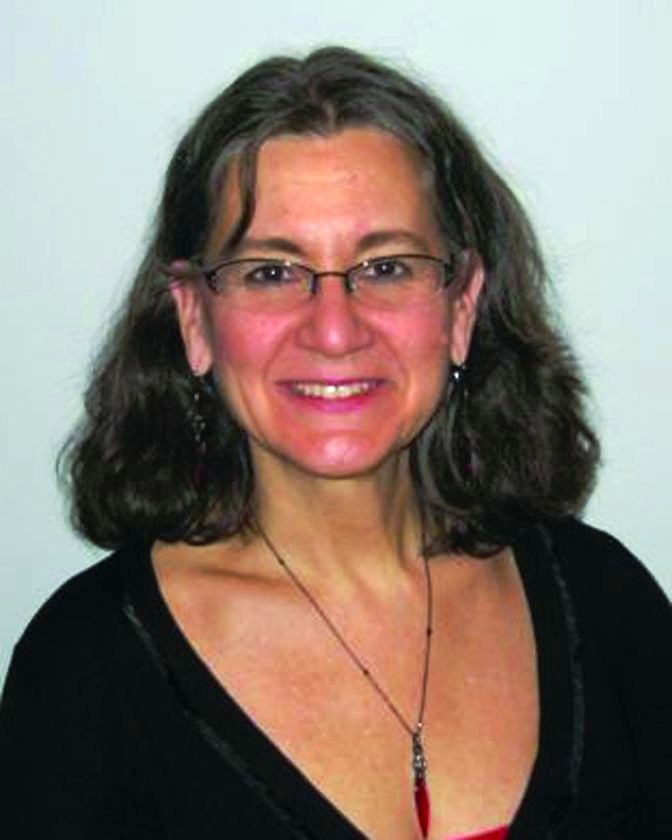User login
The American Congress of Obstetricians and Gynecologists held its State Legislative Roundtable in late October in Arlington, Va., with ob.gyns. and their lobbyists from 46 states. This is the largest number of states ever represented at the roundtable event, and it reflects the increased participation and engagement in policy making by women’s health care providers.
Attendees also discussed an increasing number of policies that focused on the exclusion of family planning providers from Medicaid. Some states have passed legislation that excludes Planned Parenthood and other qualified providers from participating in state-funded programs. These efforts raise serious concerns about access to care.
Susan Stone, DNSc, the president-elect of the American College of Nurse-Midwives (ACNM) – who was a guest at the meeting – discussed midwifery issues and shared the group’s top legislative priorities with a focus on issues and states in which there could be collaboration between ACOG and the ACNM. This discussion was continued in the breakout sessions, where a smaller group of attendees discussed a variety of issues including oversight, licensing requirements, and collaborative practices.
Another topic for the breakout sessions was the Maternal Mortality Review Committees. With an estimated 700 women dying of pregnancy-related causes in the United States every year and an additional 65,000 women experiencing serious health complications, the creation of a Maternal Mortality Review Committee in each state is a top priority. State representatives discussed this legislation and reviewed how to work with state medical societies, other medical organizations, and advocacy groups to enact this legislation. ACOG has written a proposal that will be presented to the American Medical Association in order to get their support for the passage of state legislation to create Maternal Mortality Review Committees.
Contraception and abortion access continued to be hot topics of discussion. Some states have passed laws that would protect or expand contraceptive coverage and access to abortion regardless of changes that may occur at the federal level. A few states have passed legislation that allows pharmacists to prescribe hormonal contraception. Over-the-counter access to long-term hormonal contraception has not been approved by the Food and Drug Administration and is not currently available.
Many ACOG advocates are lobbying to block state efforts to restrict abortion access, such as laws that ban abortion after 20 weeks, which have been passed in many states. A few states have passed bills that criminalize physicians who perform abortions after 20 weeks. Some states have passed or are considering legislation that defines life as beginning at conception, also referred to as “personhood” legislation. However, other states have blocked bills that would have forced physicians to tell women that a medication abortion can be “reversed.”
During a media workshop, attendees discussed interactions with the media and the use of digital media to advance legislative issues. Throughout the Roundtable, attendees tweeted using the hashtag #ACOGLegWork. The success of #ACOGLegWork resulted in the hashtag trending on Twitter. Ob.gyns. were urged to follow @ACOGAction, ACOG’s advocacy Twitter account, and to try Twitter on their own.
The next meeting of the ACOG State Legislative Roundtable will be Oct. 27-28, 2018, in Nashville, Tenn.
Dr. Bohon is an ob.gyn. in private practice in Washington. She is an ACOG state legislative chair from the District of Columbia and a member of the Ob.Gyn. News Editorial Advisory Board. She reported having no relevant financial disclosures.
The American Congress of Obstetricians and Gynecologists held its State Legislative Roundtable in late October in Arlington, Va., with ob.gyns. and their lobbyists from 46 states. This is the largest number of states ever represented at the roundtable event, and it reflects the increased participation and engagement in policy making by women’s health care providers.
Attendees also discussed an increasing number of policies that focused on the exclusion of family planning providers from Medicaid. Some states have passed legislation that excludes Planned Parenthood and other qualified providers from participating in state-funded programs. These efforts raise serious concerns about access to care.
Susan Stone, DNSc, the president-elect of the American College of Nurse-Midwives (ACNM) – who was a guest at the meeting – discussed midwifery issues and shared the group’s top legislative priorities with a focus on issues and states in which there could be collaboration between ACOG and the ACNM. This discussion was continued in the breakout sessions, where a smaller group of attendees discussed a variety of issues including oversight, licensing requirements, and collaborative practices.
Another topic for the breakout sessions was the Maternal Mortality Review Committees. With an estimated 700 women dying of pregnancy-related causes in the United States every year and an additional 65,000 women experiencing serious health complications, the creation of a Maternal Mortality Review Committee in each state is a top priority. State representatives discussed this legislation and reviewed how to work with state medical societies, other medical organizations, and advocacy groups to enact this legislation. ACOG has written a proposal that will be presented to the American Medical Association in order to get their support for the passage of state legislation to create Maternal Mortality Review Committees.
Contraception and abortion access continued to be hot topics of discussion. Some states have passed laws that would protect or expand contraceptive coverage and access to abortion regardless of changes that may occur at the federal level. A few states have passed legislation that allows pharmacists to prescribe hormonal contraception. Over-the-counter access to long-term hormonal contraception has not been approved by the Food and Drug Administration and is not currently available.
Many ACOG advocates are lobbying to block state efforts to restrict abortion access, such as laws that ban abortion after 20 weeks, which have been passed in many states. A few states have passed bills that criminalize physicians who perform abortions after 20 weeks. Some states have passed or are considering legislation that defines life as beginning at conception, also referred to as “personhood” legislation. However, other states have blocked bills that would have forced physicians to tell women that a medication abortion can be “reversed.”
During a media workshop, attendees discussed interactions with the media and the use of digital media to advance legislative issues. Throughout the Roundtable, attendees tweeted using the hashtag #ACOGLegWork. The success of #ACOGLegWork resulted in the hashtag trending on Twitter. Ob.gyns. were urged to follow @ACOGAction, ACOG’s advocacy Twitter account, and to try Twitter on their own.
The next meeting of the ACOG State Legislative Roundtable will be Oct. 27-28, 2018, in Nashville, Tenn.
Dr. Bohon is an ob.gyn. in private practice in Washington. She is an ACOG state legislative chair from the District of Columbia and a member of the Ob.Gyn. News Editorial Advisory Board. She reported having no relevant financial disclosures.
The American Congress of Obstetricians and Gynecologists held its State Legislative Roundtable in late October in Arlington, Va., with ob.gyns. and their lobbyists from 46 states. This is the largest number of states ever represented at the roundtable event, and it reflects the increased participation and engagement in policy making by women’s health care providers.
Attendees also discussed an increasing number of policies that focused on the exclusion of family planning providers from Medicaid. Some states have passed legislation that excludes Planned Parenthood and other qualified providers from participating in state-funded programs. These efforts raise serious concerns about access to care.
Susan Stone, DNSc, the president-elect of the American College of Nurse-Midwives (ACNM) – who was a guest at the meeting – discussed midwifery issues and shared the group’s top legislative priorities with a focus on issues and states in which there could be collaboration between ACOG and the ACNM. This discussion was continued in the breakout sessions, where a smaller group of attendees discussed a variety of issues including oversight, licensing requirements, and collaborative practices.
Another topic for the breakout sessions was the Maternal Mortality Review Committees. With an estimated 700 women dying of pregnancy-related causes in the United States every year and an additional 65,000 women experiencing serious health complications, the creation of a Maternal Mortality Review Committee in each state is a top priority. State representatives discussed this legislation and reviewed how to work with state medical societies, other medical organizations, and advocacy groups to enact this legislation. ACOG has written a proposal that will be presented to the American Medical Association in order to get their support for the passage of state legislation to create Maternal Mortality Review Committees.
Contraception and abortion access continued to be hot topics of discussion. Some states have passed laws that would protect or expand contraceptive coverage and access to abortion regardless of changes that may occur at the federal level. A few states have passed legislation that allows pharmacists to prescribe hormonal contraception. Over-the-counter access to long-term hormonal contraception has not been approved by the Food and Drug Administration and is not currently available.
Many ACOG advocates are lobbying to block state efforts to restrict abortion access, such as laws that ban abortion after 20 weeks, which have been passed in many states. A few states have passed bills that criminalize physicians who perform abortions after 20 weeks. Some states have passed or are considering legislation that defines life as beginning at conception, also referred to as “personhood” legislation. However, other states have blocked bills that would have forced physicians to tell women that a medication abortion can be “reversed.”
During a media workshop, attendees discussed interactions with the media and the use of digital media to advance legislative issues. Throughout the Roundtable, attendees tweeted using the hashtag #ACOGLegWork. The success of #ACOGLegWork resulted in the hashtag trending on Twitter. Ob.gyns. were urged to follow @ACOGAction, ACOG’s advocacy Twitter account, and to try Twitter on their own.
The next meeting of the ACOG State Legislative Roundtable will be Oct. 27-28, 2018, in Nashville, Tenn.
Dr. Bohon is an ob.gyn. in private practice in Washington. She is an ACOG state legislative chair from the District of Columbia and a member of the Ob.Gyn. News Editorial Advisory Board. She reported having no relevant financial disclosures.

